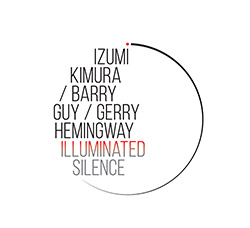
Performing at St. Ann's Church in Dublin, Ireland, the trio of Japanese pianist living in Ireland, Izumi Kimura, is joined by London bassist Barry Guy and Swiss based drummer Gerry Hemingway for 8 superb improvisations, including renderings of Guy's "Blue Horizon", "Ancients" and "Finding It" and Agusti Fernandez' "How to Go Into a Room You Are Already In".
Out of Stock
Quantity in Basket: None
Log In to use our Wish List
Shipping Weight: 3.00 units
Sample The Album:
Izumi Kimura-piano
Barry Guy-bass
Gerry Hemingway-drums
Click an artist name above to see in-stock items for that artist.
UPC: 5905279364394
Label: Listen! Foundation (Fundacja Sluchaj!)
Catalog ID: FSR 01 | 2019
Squidco Product Code: 27462
Format: CD
Condition: New
Released: 2019
Country: Poland
Packaging: Cardboard Gatefold
Recorded at in St. AnnŐs Church, in Dublin, Ireland on February 22nd, 2018, by Adrian Hart.
"Although Illuminated Silence is nominally billed as a trio of equals-and, musically speaking, it is just that--it was Japanese pianist Izumi Kimura's lead that brought long-standing musical collaborators Barry Guy and Gerry Hemingway together in Dublin for this live date at St. Ann's Church. Kimura is well known in Ireland--her home for over twenty years--as a brilliant technician and a fearless improviser, and it will come as no surprise to her admirers that Kimura more than holds her own with these two estimable international figures in improvised music.
Kimura had previously played live with both Guy and Hemingway in duo settings in 2017, but this trio first came together in The Tyrone Guthrie Centre, an artists' residential retreat in County Monagahan, where musical concepts were shaped prior to this recording. Although only three of the eight tracks are credited as improvised pieces, in fact, the five compositions-three by Guy, one by Kimura and one by Majorcan improvising pianist/composer Agusti Fernández-are simply frameworks for collective improvisation. The dramatic calling card "Intro," which explodes with a hammered two-note piano motif, sets the tone with its tumultuous peaks and tension-filled exploratory plateaus, even in the quietest moments.
The waxing and waning of the collective voice on the lyrical "Blue Horizon" grabs-and holds-the attention as much as the individual virtuosity on show. Here, the ghost of a Japanese melody briefly haunts Kimura's flowing run, on a tune which captivates even more as the trio's steam dissipates. The playing is at its most abstract on "Improvisation on a Painting," where the jagged-nerves intro-all scratching skin, wheezing strings and stabbing keys-gives way to less fractured, sotto voce impressionism. Melody marks both entry points for Kimura's "The Willow Tree Cannot Be Broken by the Snow," a rhapsodic meditation punctuated by unaccompanied drum and bass solos-the storm before the calm.
The conceptual nature of this music is encapsulated in Guy's reading of a poem by 8th century Chinese Zen teacher Sekito Kisen, by way of introduction to "Improvisation on Light and Shadow": "In the light there is darkness, but don't take it as darkness, in the dark there is light, but don't see it as light. Light and dark oppose one another like the front and back feet in walking." Kisen, you feel, would have recognized the symbiosis in the trio's silences and tumult, in its deft tip-toeing and intense stride, in its caressing play and avalanches of emotion, its simultaneous embrace of form and freedom.
All these contrasts inhabit Guy's "The Ancients," where the lyrical, emotive intro and outro bookend some of the trio's most charged and compelling interplay. The colors are more subtle on the haunting "How to Inhabit a Room You're Already In"; as Kimura winds a slow, quasi-baroque course, Guy's bending notes evoke a Korean gayageum, while Hemingway alternatively draws cries from his cymbals and sings into his drum-skin. The trio rounds out a consistently arresting performance with the upbeat "Finding It," which careers back and forth between boppish rhythm, heady improvised exchange and ruminative abstraction.
The sustained applause from the audience acknowledges an inspired performance, but you suspect that those present are not the only ones for whom the full force of Kimura, Guy and Hemingway's courageous musical dialogue can only be put into context by the ensuing silence, relative as that may be."-Ian Patterson, All About Jazz
Get additional information at All About Jazz
Artist Biographies
• Show Bio for Izumi Kimura Izumi Kimura, piano: "As a contemporary pianist, I am attracted to the things that live in the cracks between composed and improvised music. Between abstract and concrete, variations of the forms the Nature takes, our roles, cultures, languages, attitudes, things unknown, things in between, invisibles and inaudibles, all these things are vibrations I try to listen, through the act of playing the piano. I was born in Yokohama, Japan, and have been playing the piano since I was little and the whole time I spent in Japan, which was up to 1995. As soon as I graduated from Toho University of Music in Tokyo I moved to Ireland. It took a long time and some turbulence of life before my music and life started to grow together. Very slowly, life and music started becoming intertwined with each other, and they are becoming one. I have been lucky to work with lots of great musicians and wonderful people from both classical and jazz/improvised music fields. Musicians and ensembles I worked with include RTECO, Crash Ensemble, Ergodos, Music 21, Michael d'Arcy, Bill Dowdall, Kenneth Edge, Ben Dwyer, Cora Venus Lunny and many more from the world of classical music, and Ronan Guilfoyle, Barry Guy, Gerry Hemingway, Tommy Halferty, Michael Buckley, Dominique Pifarély, Benoît Delbecq, Stéphane Payen, Sarah Buechi and many more from the world of jazz/improvised music. The festivals I enjoyed performing in Ireland and abroad include RTE Living Music Festival, Boyle Arts Festival, Dublin Dance Festival, Dublin Fringe Festival, Bray Jazz Festival, Kilkenny Arts Festival, Ghent Street Festival of New Music in Belgium, Music 21's 'Brazil Now', 'Artes Da Irlanda' in Sao Paolo, Brazil, and Creative Connexions in Sitges, Spain, and many more." ^ Hide Bio for Izumi Kimura • Show Bio for Barry Guy "Barry John Guy (born 22 April 1947, in London) is a British composer and double bass player. His range of interests encompasses early music, contemporary composition, jazz and improvisation, and he has worked with a wide variety of orchestras in the UK and Europe. He also taught at Guildhall School of Music. Born in London, Guy came to the fore as an improvising bassist as a member of a trio with pianist Howard Riley and drummer Tony Oxley (Witherden, 1969). He also became an occasional member of John Stevens' ensembles in the 1960s and 1970s, including the Spontaneous Music Ensemble. In the early 1970s, he was a member of the influential free improvisation group Iskra 1903 with Derek Bailey and trombonist Paul Rutherford (a project revived in the late 1970s, with violinist Philipp Wachsmann replacing Bailey). He also formed a long-standing partnership with saxophonist Evan Parker, which led to a trio with drummer Paul Lytton which became one of the best-known and most widely travelled free-improvising groups of the 1980s and 1990s. He was briefly a member of the Michael Nyman Band in the 1980s, performing on the soundtrack of The Draughtsman's Contract. Guy's interests in improvisation and formal composition received their grandest form in the London Jazz Composers Orchestra. Originally formed to perform Guy's composition Ode in 1972 (released as a 2-LP set on Incus and later, in expanded form, as a 2-CD set on Intakt), it became one of the great large-scale European improvising ensembles. Early documentation is spotty - the only other recording from its early years is Stringer (FMP, now available on Intakt paired with the later "Study II") - but beginning in the late 1980s the Swiss label Intakt set out to document the band more thoroughly. The result was a series of ambitious, album-length compositions designed to give all the players in the band maximum opportunity for expression while still preserving a rigorous sense of form: Zurich Concerts, Harmos, Double Trouble (originally written for an encounter with Alexander von Schlippenbach's Globe Unity Orchestra, though the eventual CD was just for the LJCO), Theoria (a concerto for guest pianist Irène Schweizer), Three Pieces, and Double Trouble Two. The group's activities subsided in the mid-1990s, but it was never formally disbanded, and reconvened in 2008 for a one-off concert in Switzerland. In the mid-1990s Guy also created a second, smaller ensemble, the Barry Guy New Orchestra. Guy has also written for other large improvising ensembles, such as the NOW Orchestra and ROVA (the piece Witch Gong Game inspired by images by the visual artist Alan Davie). His current improvising activities include piano trios with Marilyn Crispell and Agusti Fernandez. He has also recorded several albums for ECM, which often focus on the interface between improvisers and electronics, including his work in Evan Parker's Electro-Acoustic Ensemble and his own Ceremony. Guy's session work in the pop field includes playing double bass on the song "Nightporter", from the Japan album Gentlemen Take Polaroids. He is married to the early music violinist Maya Homburger. After spending some years in Ireland, they now live in Switzerland. They run the small label Maya, which releases a variety of records in the genres of free improvisation, baroque music and contemporary composition. Guy's jazz work is characterised by free improvisation, using a range of unusual playing methods: bowed and pizzicato sounds beneath the bass's bridge; plucking the strings above the left hand; beating the strings with percussion instrument mallets; and "preparing" the instrument with sticks and other implements inserted between the strings and fingerboard. His improvisations are often percussive and unpredictable, inhabiting no discernible harmonic territory and pushing into unknown regions. However, they can also be melodious and tender with due regard for harmonic integration with other players, and at times he will even play with a straight jazz swing feel. Similarly, in his concert works, Guy manages to alternate harmonic and rhythmic complexity worthy of 1960s experimentalists such as Penderecki and Stockhausen with joyous, often ecstatic, melody. Works such as "Flagwalk" for string orchestra and "Fallingwater - Concerto for Orchestra" display Guy's compositional skill in handling extended forms and writing for large instrumental groups. Some of his compositions, such as "Witch Gong Game" for ensemble, use graphic notation in conjunction with cue cards to lead performers into playing and improvising material from numbered sections of the score. He is also an architect." ^ Hide Bio for Barry Guy • Show Bio for Gerry Hemingway "Gerry Hemingway has led a number of quartet and quintets since the mid 1980's. In addition he has been a member of a wide array of long standing collaborative groups including Brew with Reggie Workman and Miya Masaoka, the GRH trio with Georg Graewe and Ernst Reijseger, the WHO trio with Michel Wintsch and Bänz Oester, as well as numerous duo projects with Thomas Lehn, John Butcher, Ellery Eskelin, Marilyn Crispell, and others. Mr. Hemingway is a Guggenheim fellow and has received numerous commissions for chamber and orchestral works as well as being noted for his innovative and multifaceted work as a solo performer which began in 1974. He was a member of the Anthony Braxton Quartet between 1983 and 1994 and is also well known for his collaborations with some of the world's most outstanding improvisers and composers including Evan Parker, Cecil Taylor, Mark Dresser, Anthony Davis, Derek Bailey, Leo Smith and many others. He currently lives in Switzerland having joined the faculty of the Hochschule Luzern in 2009." ^ Hide Bio for Gerry Hemingway
11/20/2024
Have a better biography or biography source? Please Contact Us so that we can update this biography.
11/20/2024
Have a better biography or biography source? Please Contact Us so that we can update this biography.
11/20/2024
Have a better biography or biography source? Please Contact Us so that we can update this biography.
Track Listing:
1. Intro 8:16
2. Blue Horizon 6:30
3. Improvisation on a Painting 8:20
4. The Willow Tree Cannot Be Broken By The Snow 7:50
5. Improvisation on Light and Shadow 8:12
6. Ancients 8:51
7. How To Go Into A Room You Are Already In 6:51
8. Finding It 8:15
Improvised Music
Jazz
Free Improvisation
Trio Recordings
European Improvisation and Experimental Forms
London & UK Improv & Related Scenes
Staff Picks & Recommended Items
Search for other titles on the label:
Listen! Foundation (Fundacja Sluchaj!).


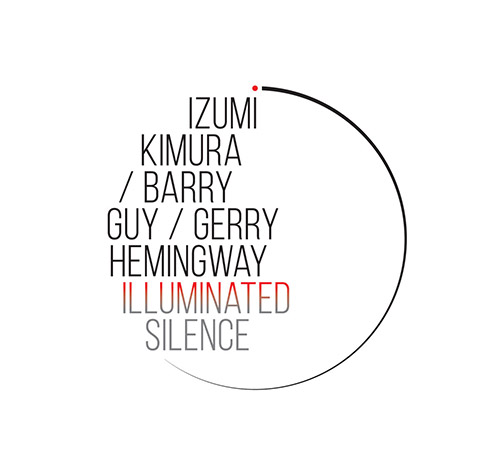

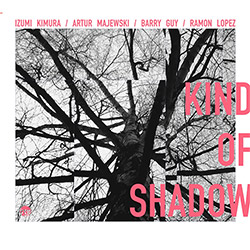
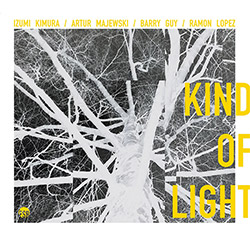
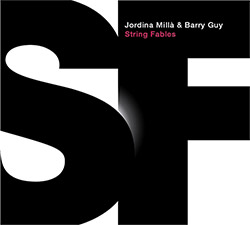
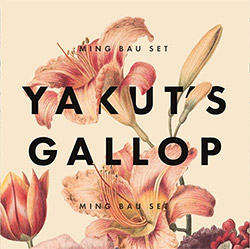
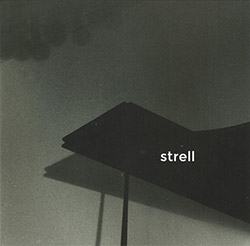
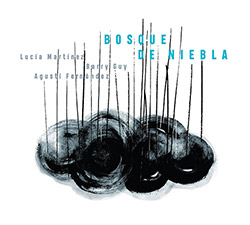
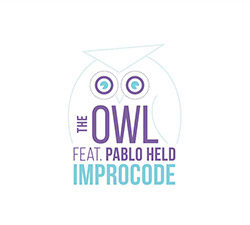

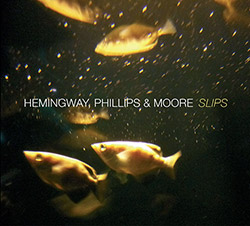

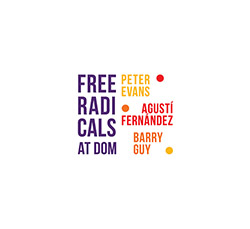




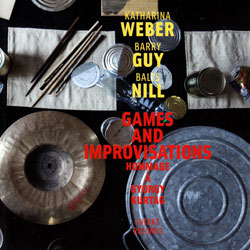
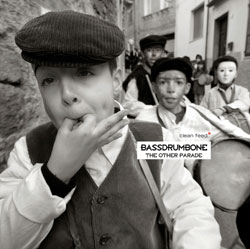
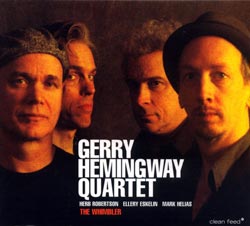

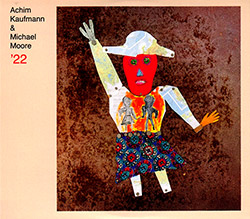


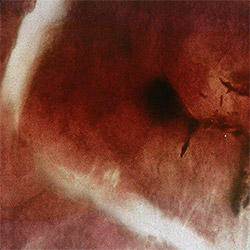




![Guy, Barry / Ken Vandermark: Occasional Poems [2 CDs]](https://www.teuthida.com/productImages/misc4/34849.jpg)
![Novoa / Carter / Mela Trio: Vol.1 [VINYL]](https://www.teuthida.com/productImages/misc4/35236.jpg)


![Elephant9 : Mythical River [VINYL]](https://www.teuthida.com/productImages/misc4/34624.jpg)
![Evans, Peter (Evans / Eldh / Black): Extra [VINYL]](https://www.teuthida.com/productImages/misc4/35279.jpg)

![McPhee, Joe: Straight Up, Without Wings [BOOK]](https://www.teuthida.com/productImages/misc4/35454.jpg)
![Jeck, Philip: rpm [2 CDs]](https://www.teuthida.com/productImages/misc4/35455.jpg)













![Barker / Parker / Irabagon: Bakunawa [VINYL]](https://www.teuthida.com/productImages/misc4/35533.jpg)
![Blaser, Samuel / Marc Ducret / Peter Bruun: Dark Was The Night, Cold Was The Ground [VINYL 10-inch]](https://www.teuthida.com/productImages/misc4/35492.jpg)








![Warren, Kenny (Warren / Hoffman / Ellman): Sweet World [VINYL]](https://www.teuthida.com/productImages/misc4/35451.jpg)




![Blake, Ran / Dave Knife Fabris: Live Amsterdam 2006, First Visit [CD + POSTCARDS]](https://www.teuthida.com/productImages/misc4/35275.jpg)













![DNS: Taking Big Bites Of The Khandas Three Cafes Deep [2 CDs]](https://www.teuthida.com/productImages/misc4/35334.jpg)




![Cleaver, Gerald: The Process [VINYL]](https://www.teuthida.com/productImages/misc4/34966.jpg)




![Alva Noto: HYbr:ID II [VINYL 2 LPs]](https://www.teuthida.com/productImages/misc4/35201.jpg)

![Baron, Derek / Luke Martin: Distinct and Concealed [CASSETTE + DOWNLOAD]](https://www.teuthida.com/productImages/misc4/35079.jpg)

![Lyle, Erica Dawn : Colonial Motels [CASSETTE + DOWNLOAD]](https://www.teuthida.com/productImages/misc4/35080.jpg)









![Sanna, Claudio: Compositori Sardi Contemporanei II [2 CDs]](https://www.teuthida.com/productImages/misc4/35317.jpg)







![Zurria, Manuel: Fame di Vento [3 CDs]](https://www.teuthida.com/productImages/misc4/35167.jpg)

![Granberg, Magnus / Nattens Inbrott / Skogen: Holde Traume, Kehret Wieder! [2 CDs]](https://www.teuthida.com/productImages/misc4/35038.jpg)
![Frey, Jurg: Outermost Melodie [2 CDs]](https://www.teuthida.com/productImages/misc4/35039.jpg)

![Pavone, Jessica: Reverse Bloom [VINYL]](https://www.teuthida.com/productImages/misc4/34895.jpg)




![Modney (Modney / Wooley / Gentile / Roberts / Pluta / Symthe / ...): Ascending Primes [2 CDs]](https://www.teuthida.com/productImages/misc4/34852.jpg)









![Elephant9 with Terje Rypdal: Catching Fire [VINYL 2 LPs]](https://www.teuthida.com/productImages/misc4/35355.jpg)
![Deerlady (Obomsawin, Mali / Magdalena Abrego): Greatest Hits [VINYL]](https://www.teuthida.com/productImages/misc4/34876.jpg)




![Haino, Keiji: Black Blues [2 CDs]](https://www.teuthida.com/productImages/misc4/35109.jpg)



![Surplus 1980: Illusion of Consistency [CD]](https://www.teuthida.com/productImages/misc4/35069.jpg)
![Staiano, Moe: Away Towards the Light [VINYL + DOWNLOAD]](https://www.teuthida.com/productImages/misc4/35037.jpg)



![Caveira (Gomes / Sousa / Abras / Ferrandini): Ficar Vivo [VINYL]](https://www.teuthida.com/productImages/misc4/34643.jpg)
![Gregg, J. J. / David Van Auken: Lunar Prairie [CD w/ DOWNLOAD]](https://www.teuthida.com/productImages/misc4/34611.jpg)

![Coultrain: Mundus [VINYL]](https://www.teuthida.com/productImages/misc4/32439.jpg)
![Mattin: Songbook #6 [VINYL]](https://www.teuthida.com/productImages/misc4/27317.jpg)
![Punkappella: Wake Up [7-inch VINYL]](https://www.teuthida.com/productImages/misc4/17519.jpg)
![Residents, The: WARNING: UNiNC.: Live And Experimental Recordings 1971-1972 [VINYL 2 LPs]](https://www.teuthida.com/productImages/misc4/31521.jpg)
![Coultrain: Phantasmagoria [VINYL]](https://www.teuthida.com/productImages/misc4/30142.jpg)
![Lennon, Sean Ono: Asterisms [VINYL]](https://www.teuthida.com/productImages/misc4/34517.jpg)

![Coley, Byron: Dating Tips for Touring Bands [VINYL]](https://www.teuthida.com/productImages/misc4/17906.jpg)

![Lost Kisses: My Life is Sad & Funny [DVD]](https://www.teuthida.com/productImages/misc4/lostKissesDVD.jpg)